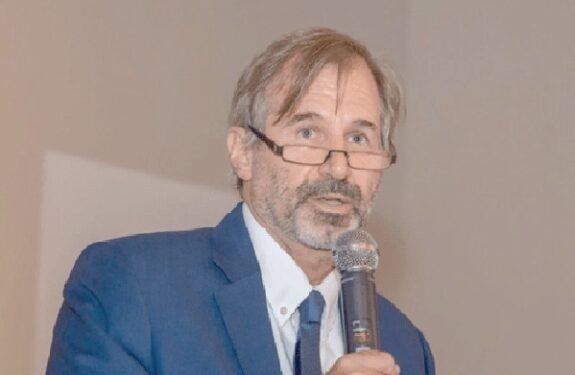The Deputy Managing Director of Fidelity Bank, Atta Yeboah Gyan, has called for a shift in investment strategies to foster sustainable economic growth. He emphasized the importance of reevaluating where capital is allocated.
Gyan highlighted the significance of the Domestic Debt Exchange Programme (DDEP) in restructuring the country’s debt. However, he noted that its impact on capital allocation continues to influence banking industry strategies.
Speaking at the Money Summit 2024, Gyan stressed the necessity of moving away from traditional asset classes. He advocated for exploring emerging opportunities in renewable energy, sustainable infrastructure, and impact investing.
“We have the unique opportunity to collectively chart a course towards a more sustainable and equitable future,” Mr. Gyan stated.
“This requires us to re-think the way we allocate capital, from traditional asset classes to emerging opportunities in renewable energy, sustainable infrastructure, and impact investing.”
Atta Yeboah Gyan
Mr. Gyan’s comments resonated with the summit’s theme, “Investing for the Future: Re-Thinking Investment and Savings to Drive Sustainable Economic Growth.” The theme underscored the need to embrace a new investment paradigm to secure a stable financial future in the ever-changing economic landscape.
Recognizing the array of challenges confronting the nation, such as high inflation, slow economic growth, and escalating interest rates, Mr. Gyan underscored that the conventional methods of investing and saving may no longer be adequate.
“The path to sustainable growth and prosperity requires us to rethink our approach to investment and savings,” said Mr. Gyan.
“We must embrace a new ethos of responsible and forward-looking investing, one that not only seeks financial gain but also creates positive social and environmental impact.”
Atta Yeboah Gyan
He urged investors to take a comprehensive approach to managing risk, diversify their investments, and look for opportunities that reflect their personal values, such as supporting environmental sustainability or making a social impact.
Gyan also stressed the significance of financial literacy, empowering individuals to make well-informed decisions regarding their investments and to navigate the complexities of financial markets.
Furthermore, banks and financial institutions were encouraged to incorporate environmental, social, and governance (ESG) considerations into their investment strategies.
They were advised to embrace innovation and utilize technology to improve the efficiency and accessibility of investment products and services.
“By offering tailored investment solutions and personalized advice, financial institutions can attract socially conscious investors and contribute to sustainable economic growth,” Mr. Gyan stated.

Policy Shifts Propel Investment Opportunities
Regulators and policymakers were urged to enforce rules that uphold transparency, fairness, and accountability within financial markets.
Additionally, they were encouraged to introduce policies aimed at reducing systemic risks and preventing market manipulation.
Mr. Gyan challenged participants to broaden the scope of investment opportunities, suggesting alternative avenues for equity investments.
“Consider investing in the business of local street food vendors, transforming them into well-branded eateries or mini-restaurants for increased profit and a stake in the business.
“Have you ever considered literally investing in your children’s school for a stake in their returns?”
Atta Yeboah Gyan
Gyan’s message reverberates, particularly for small businesses hindered by capital scarcity. Their predominant hurdle remains the lack of funds.
A comprehensive review of small and medium enterprise (SME) research in Ghana, published in the Journal of Global Entrepreneurship Research, discussed various challenges faced by SMEs, including access to finance.
The study systematically reviews SME research contributions from Ghana to understand the advancement of SME research in the context of Ghana.
Through advocating for diversified investment avenues, Gyan extends a lifeline to these enterprises. His proposals, such as investing in local businesses offer innovative solutions to this challenge.
Small businesses could experience substantial gains from such initiatives, potentially evolving into flourishing entities. Gyan’s proposal not only fosters economic growth but also nurtures community development, underscoring the transformative potential of strategic investment choices.
READ ALSO: China Issues Highest-Level Rainstorm Warning























